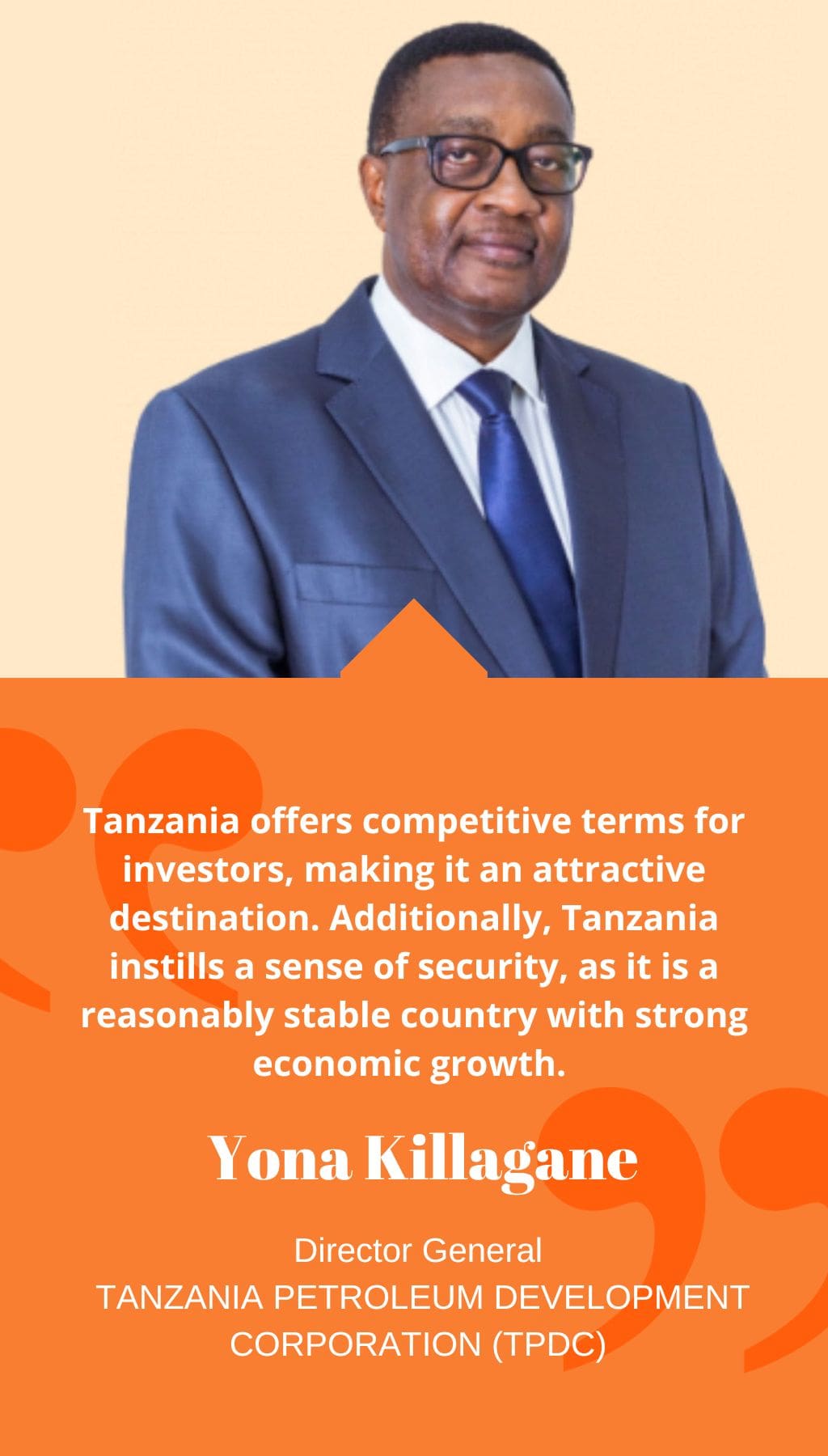
- Tanzania | 9 May 2018

How will the Tanzania Petroleum Development Corporation’s (TPDC’s) role evolve in light of new legislative changes?
The role of TPDC is undergoing significant changes, and the institutional transformation has already begun. Previously, TPDC functioned as a regulator, overseeing companies and participating in exploration and licensing activities. However, this will no longer be the case as TPDC will now actively engage in exploration activities. The government has already allocated two blocks to TPDC, and we are planning to undertake exploration independently, which marks a major step for us. It is not feasible for us to continue as both a stakeholder and a regulator simultaneously. Another important change involves TPDC’s role in the downstream segment, specifically in promoting and participating in it. With the anticipation of significant gas discoveries, we need to strategize the best ways to commercialize these resources.
What type of sharing arrangement will TPDC have for its two new blocks?
TPDC will handle most of the basic work internally. We have already acquired the 2D study and are currently finalizing the interpretation. Once we complete the 2D component and confirm the relevant structures, we will progress to 3D scanning. Our focus is on minimizing risks in the blocks, and at the drilling stage, we will seek a strategic partner rather than a production sharing agreement (PSA). In the near future, we will collaborate with INP Mozambique to mobilize a seismic acquisition group. We plan to conduct seismic surveys on the two allocated blocks, in addition to the existing grid. The 3D data will be ready by the 4th quarter of 2017 or 1st quarter of 2018. The drilling of wells in these blocks is scheduled for 2018.
Recently, six international companies submitted bids for four exploration blocks. What factors will determine the winning bid?
We are evaluating technical capabilities, financial capacities, and the government’s share in the production sharing agreement (PSA). These three factors play a significant role in our decision-making process. Regarding the government share, we have established certain thresholds in the bidding documents, and companies must surpass these thresholds to remain in contention. If a company bids below the set level, they will be disqualified. It is challenging to speculate on why companies may not be bidding for other blocks at this stage. Possible reasons could include factors such as water depth or uncertainties related to the acquired data. Once the evaluation process is complete, we will have a clearer understanding.
What sets Tanzania apart from countries with similar exploration opportunities?
Tanzania offers competitive terms for investors, making it an attractive destination. Additionally, Tanzania instills a sense of security, as it is a reasonably stable country with strong economic growth. These factors set Tanzania apart from other countries, enhancing its appeal for exploration and investment opportunities.
How is TPDC involved in the development of LNG capabilities?
TPDC plays a significant role in the development of LNG in Tanzania, with the objective of establishing an LNG plant. Our active participation is crucial for this vital project, and we are committed to playing an active role in its realization.
What competitive advantages does Tanzania have to become one of the world’s leading LNG exporters?
Tanzania’s advantage lies in partnering with experienced and well-established companies in the development of LNG projects. Companies like ExxonMobil, which operates several LNG plants worldwide, BG, with its expertise in building LNG facilities, and Statoil, which owns multiple LNG facilities in Norway, bring profound experience to the table. In contrast, none of our counterparts in Mozambique has yet built an LNG plant.
What measures are being taken to ensure that local content in these partnerships benefits the nation?
The government is currently drafting a local content policy, which is being discussed with stakeholders and will eventually be released for public scrutiny. This policy document, supported by a loan, will shape the local content framework. Additionally, we are working closely with international oil companies (IOCs) to ensure a stronger focus on local content implementation. Education plays a crucial role as well. We are educating the public about the potential opportunities available for participation. National universities have introduced programs focused on oil and gas to produce skilled professionals for the industry. Our objective is to inform and involve the general public in these opportunities. Furthermore, the gas policy requires companies to collaborate closely with the communities in which they operate. Rather than dictating terms, the policy encourages participatory roles for communities to devise projects, with IOCs supporting their realization.
What are TPDC’s priority targets for the end of 2018?
Our primary target is to ensure that all power plants installed by TANESCO receive sufficient gas supply. We aim to meet TANESCO’s gas demand for their plants. Another project we are focused on is minimizing the impact of deforestation caused by the construction of a pipeline around Dar es Salaam. This pipeline will provide gas for industries, cooking, and vehicles. The project’s design is almost complete, and our next steps involve securing a contractor and arranging financing.
What is your outlook for the energy sector in Tanzania over the next decade?
The energy sector in Tanzania is progressing well and remains a crucial driver of development. To ensure sufficient gas supply, primarily for power generation and industrial needs, the government has recognized the key importance of the pipeline project. The pipeline, which starts from Mnazi Bay with a 36-inch diameter and extends to Dar es Salaam, will support the country’s growth. Additionally, another section from Songo Songo, with a 24-inch diameter pipeline, will connect to Dar es Salaam. Over the next ten years, we anticipate double-digit GDP growth. A reliable power supply will attract various industries to the country, while relatively low-cost power will facilitate export growth.














